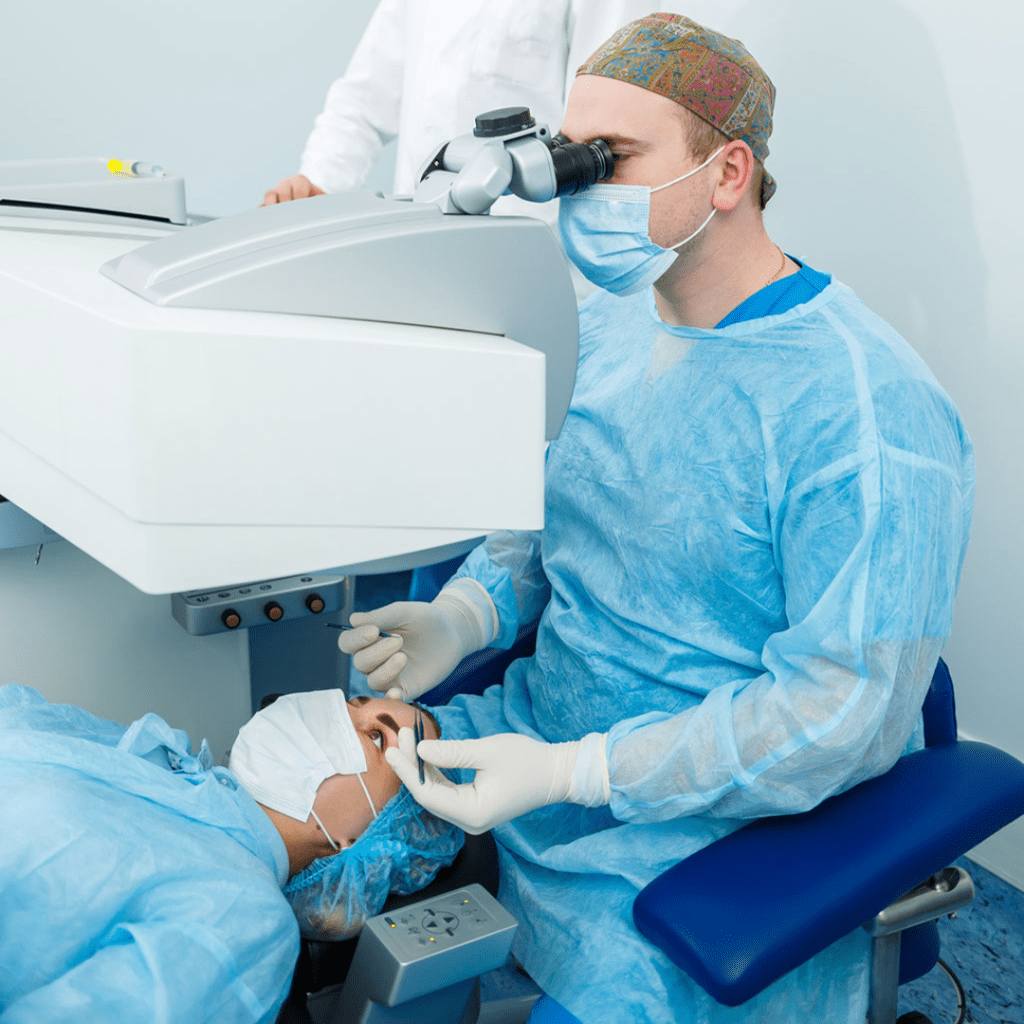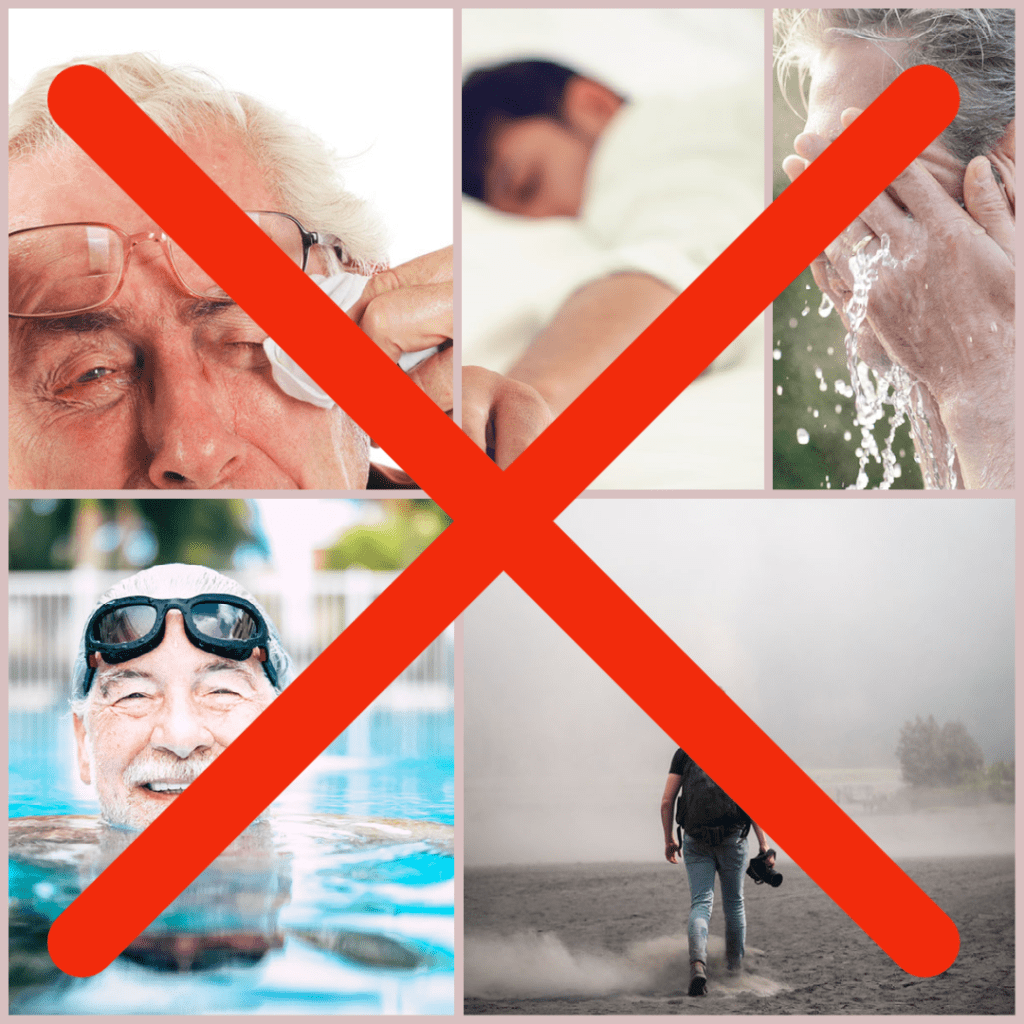CARE AFTER CATARACT SURGERY:

The postoperative recovery phase typically lasts a few weeks to a month. After a successful cataract procedure, post-operative care is essential for a favorable outcome. During this time, patients must take joint responsibility with their doctor and follow the instructions given by the medical staff regarding how to care for their eyes after surgery.
The surgery is quick thanks to the latest cataract removal technology, and the recovery period is also short.
The procedure is typically painless, but the patient may initially feel a little uncomfortable or hazy. This will pass as the effects of the medications used during surgery wear off.
The following is a list of considerations for post-operative care.
1. A few patients may need to stay in the hospital after surgery for observation, but most can go home right afterward.
2. Avoid driving for 24 hours after surgery or until you feel comfortable.

3. Avoid rubbing or touching your eyes. Use a sterile gauze piece or wipe to gently dab the under-eye area if your eye is tearing, or wait for the tear to fall to the cheek before wiping it.
4. Along with the drops, you will also receive a post-op medication schedule. Follow your doctor’s post-operative instructions precisely. Gently close your eyes for 5–10 minutes between drops.
5. Patients are usually prescribed lubricating eye drops, antibiotics, and steroid eye drops postoperatively. Be sure to carefully follow your surgeon’s instructions because steroid drops require gradual tapering. Do not stop drops on your own.
6. There are no special dietary restrictions, and patients are free to follow their usual dietary routines while managing any systemic illnesses like diabetes or hypertension that they may have.

7. Cooking is not restricted for patients, but wearing eye protection glasses in the kitchen is recommended to avoid things going into your eyes while you cook.
8. Patients can begin watching TV or reading a book soon after the surgery or when they start feeling comfortable.
9. After surgery, one can begin light exercises, but avoid bending over, lifting heavy objects, and doing anything strenuous.
10. Avoid visiting windy, dusty, or dirty locations.
11. Refrain from taking a head bath to prevent water from getting in your eyes for the first 15 days.
12. Avoid splashing water on your face; instead, use a wet towel.
13. Avoid swimming for 15 days after surgery.
14. Wear protective glasses indoors, outdoors as well as while sleeping, at least for a few days after surgery. It is to avoid any inadvertent touching of eyes.
15. Do not sleep on the operated side or in the prone position for a couple of weeks.

16. Avoid putting on eye makeup for 15 days.
17. In case of itching or discomfort use the lubricating drops that your doctor gave you in your post-op medication kit.
18. Report to your doctor in case of excessive pain, sudden blurring, watering, or irritation in the eyes.
19. Patients with the multifocal lens option can use their full range of vision after surgery, but patients with monofocal lenses will need a vision assessment within a couple of weeks and will be prescribed reading glasses.
20. If the second eye also needs cataract surgery, the glasses can be made following the second eye procedure to avoid unnecessary expenditure.
QUICK SUMMARY
It is necessary to remove the cataract and replace it with an artificial lens to improve vision (acuity and/or quality). The time of getting it operated on varies from person to person and mainly depends on how much the loss of vision or quality of vision is. For improved quality of life, a cataract should be removed immediately if the patient feels that even a small amount of the cataract is affecting their ability to see.
To prevent any complications, post-op care is just as crucial as pre-op care. Pay close attention to your doctor’s instructions, and report any significant eye discomfort to the medical staff.
